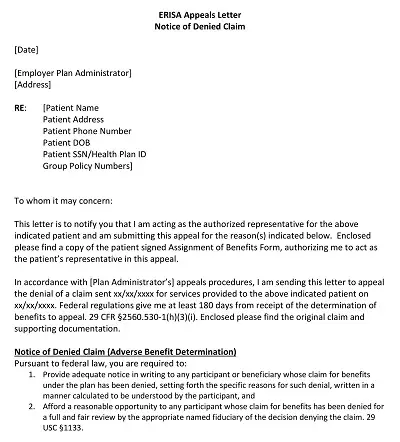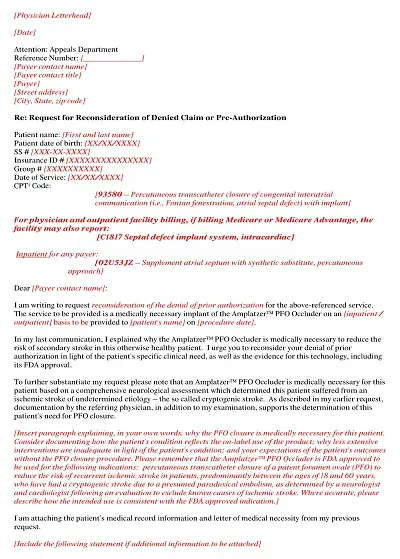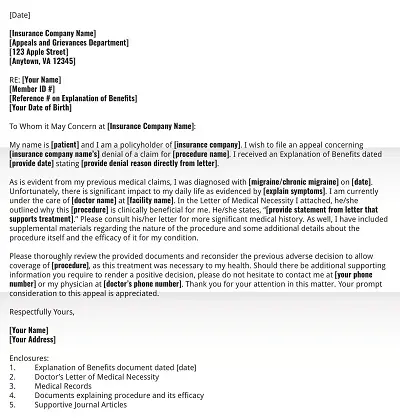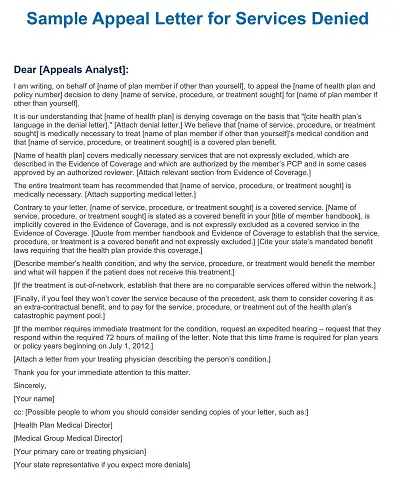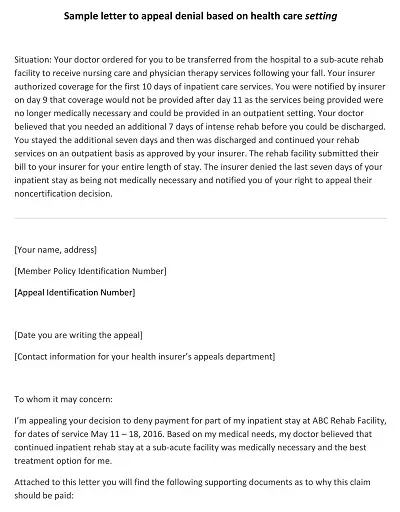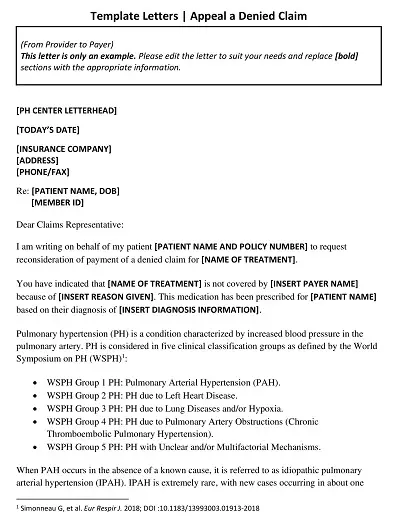12+ Free Sample Appeal Letter For Denied Claims Templates – PDF
An Appeal Letter For Denied Claims Template is a pre-created document specifically designed to provide information and data that can be used when appealing the denial of an insurance claim. This letter contains necessary elements such as policy numbers, beneficiary information, an explanation of why the claim was denied, and what resolution options are available for customers seeking reimbursement for medical expenses.
Table of Contents
Utilizing an Appeal Letter For Denied Claims helps streamline the appeals process, allowing customers to quickly resolve their denied insurance claims. Additionally, it gives them an invaluable starting point while writing their letter of appeal which can help improve their chances of obtaining a successful outcome by increasing their understanding of the whole process.
Download Free Sample Appeal Letter For Denied Claims Templates
Purpose and Scope of the Appeal Letter
Appeal letters for denied claims offer an important means for customers to have their voices heard and achieve justice for their grievances. The purpose of filing an appeal letter is to persuade the responsible authority to reverse or modify a previous decision, as it may not be fair or in line with the policies of the institution or company.
The scope of the appeal letter includes clarifying key details from the denied claim, such as why it was not approved, and making a case for why the institution should reconsider its decision. Furthermore, this document must remain well-structured and professional if the customer wants to receive a positive response. When writing such important letters, it is essential to maintain a clear focus and ensure that all relevant evidence is explained appropriately.
Common Appeal Strategies and Tips
When it comes to submitting an appeal for a denied claim, there are many things to keep in mind. From having an organized approach to clearly outlining your argument, each tip, and strategy can help you create effective communication that will support your plea for reimbursement. It is critical to make sure that you understand what caused the denial of your claim and shape your appeal accordingly.
Doing research on similar cases, as well as staying up-to-date with recent policy changes, can go a long way toward helping you build a compelling case. Additionally, micro-documentation of records will show that you have taken all the necessary steps to support your appeal and prove why the request should be approved. With these key strategies and tips in hand, ensuring success during the appeals process will be easier than ever.
Crafting a Winning Appeal Letter for Denied Claims Template
If you’ve ever had to submit an appeal letter for a denied claim, then you know how important it is to make sure your letter is clear, concise, and compelling. Crafting an effective appeal letter requires understanding the ins and outs of insurance claims regulations as well as knowing how to present your case in the best light possible. Here are some basics of writing an appeal document so that you can get the results you need when submitting your claim.
The Basics of Writing an Effective Appeal Document
First and foremost, it’s important to remember that this type of document should be written in a professional tone no slang or colloquialisms. Make sure that your tone is polite but firm, you want to be respectful but also make sure that your point is heard. It’s also important to include all relevant facts and figures, doesn’t leave out information like dates or contact info just because they seem unimportant. Every detail matters when crafting a winning appeal document.
When constructing your appeal letter, be sure to include the following elements:
- A brief summary of what happened and why it needs to be appealed
- Details about why the initial decision was incorrect or incomplete
- Documentation such as medical records or other proof that supports your case
- Contact information for both parties involved in the dispute
- A statement detailing why you believe the decision should be reversed in light of all available evidence.
Once you have all these elements in place, it’s time to wrap up your appeal document with a succinct yet powerful conclusion. Summarize any pertinent points from earlier on in the document and emphasize why reversing the initial decision would benefit everyone involved. End with a courteous request for reconsideration and thank them for their consideration.

